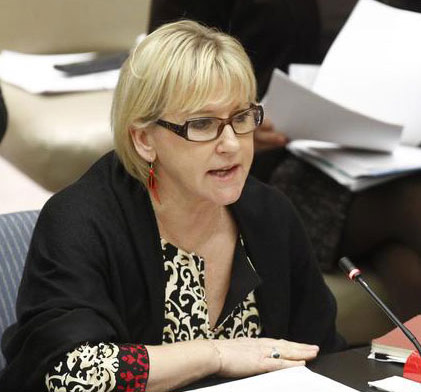
A recent U.N. report has for the first time explicitly named a number of armed groups and military forces around the world suspected to be the worst perpetrators of conflict-related sexual violence. The annual report, which was released in January, identifies extreme cases of sexual violence, provides examples of how sexual violence has threatened security and impeded peacebuilding in post-conflict situations, and makes strategic recommendations on how to prevent such offenses in the future.
The groups identified in the report operate all over the world, ranging from Colombia, to Libya, to Bosnia and Herzegovina. Rebel groups such as the Lord’s Resistance Army operating in central Africa, the Democratic Forces for the Liberation of Rwanda, and Mai Mai operating in Congo, were listed among the most flagrant offenders of sexual violence. Additionally, military forces including the Sudanese Armed Forces, the Sudan People's Liberation Army/Movement in South Sudan, and the Congolese national army, or FARDC, were singled out as some of the worst offenders. According to the report, in Congo alone a total of 625 instances of sexual violence were reported and the FARDC is allegedly responsible for almost half of these cases.
All of the groups identified have employed methods of sexual violence and rape as a means to further their goals. The rebel militias often use rape to accompany abductions and village raids, while government forces are known to rape civilians whom they claim are involved with and/or aiding the rebels. While presenting the report to the U.N. Security Council on February 23, Margot Wallström, Special Representative of the Secretary-General on Sexual Violence in Conflict, pointed out the “strategic twist” that rape has acquired as a tactic of war—“the more brutal and shocking the crime, the more effectively it humiliated and terrorized communities into submission.”
By clearly identifying the allegedly worst perpetrators, the U.N. continues to shine a light on combating conflict-related sexual violence. This is a key step to ensuring that offenders are brought to justice—a process which is often ineffective in countries such as Sudan and the Congo. Although perpetrators of rape and other forms of sexual violence may initially be captured and condemned, host countries tend to lack the follow-through to ensure these criminals are actually convicted. Members of the state militias usually reap the most benefits from this corrupt system, as the U.N. report notes, “some cases are not investigated, or if they are, trials are not held, or sentences are not served by the perpetrators.” Crimes committed by government forces are often overlooked completely, regardless of enormity, in favor of placing the entirety of the blame on rebel forces.
This impunity is greatly responsible for further hindering the already complicated and defunct justice processes that exist in many conflict regions. Additionally, it impedes the healing process for survivors of sexual violence and erases any hope for reparations. Already faced with the severe social stigma associated with being a rape survivor, victims are further disadvantaged when the criminality of their attackers is neither acknowledged nor punished. Insisting that justice be implemented in these situations is not only essential in terms of working to establish credible legal structures, but also in terms of ensuring that victims are allowed adequate restitution.
The U.N. report raises awareness on the need to not only identify, but also hold groups accountable for such serious human rights violations. It highlights the importance of addressing these issues in a timely and comprehensive manner to ensure that real progress is made to end the use of rape as a weapon of war, and to ensure that perpetrators are brought to justice.
Photo: U.N. Special Representative of the Secretary-General on Sexual Violence in Conflict Margot Wallström presents the Secretary-General’s report on conflict-related sexual violence to the Security Council. (UN Photo/JC McIlwaine)

